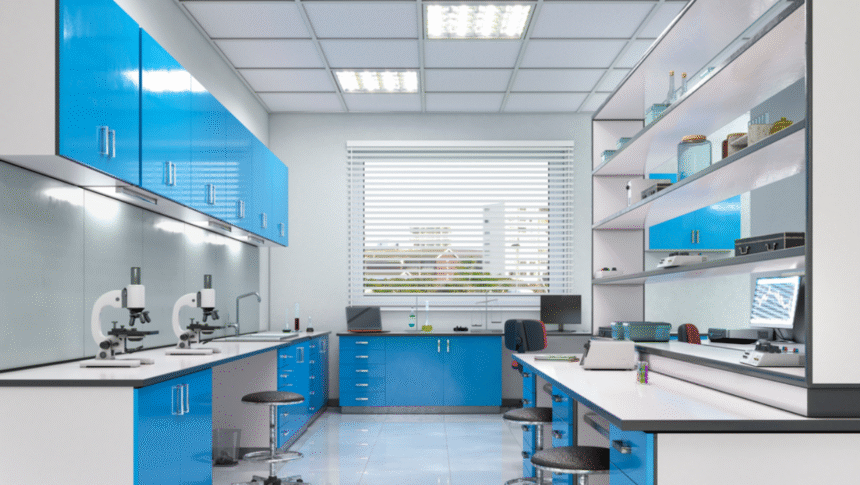It always starts the same way—just a few microscope slides. One research project turns into two. A clinical trial adds a few dozen more. Then suddenly your lab bench is buried under a sea of trays labeled in Sharpie and held together with hope.
Sound familiar?
Microscope slides may be small, but they accumulate like dust in a laser room. And if your storage solution hasn’t evolved since grad school, it’s costing you more than space—it’s costing you time, accuracy, and peace of mind.
That’s where a compact storage cabinet enters the scene—not just as a convenience, but as a strategic upgrade.
The Illusion of Space: You’re Not Out of Room—You’re Just Organizing Badly
Let’s get this straight: most labs don’t lack space. They lack usable space. Cabinets designed for bulk supplies or outdated filing systems gobble up square footage without offering real functionality for slide storage.
Compact storage cabinets, on the other hand, flip the script. They’re built specifically for high-density sample retention—stackable, slim, and surprisingly roomy on the inside.
Think TARDIS, but for histology.
How Compact Cabinets Make Labs Feel Bigger
The best storage cabinet systems do more than hold slides—they support workflow.
Here’s how:
- Vertical optimization: Instead of sprawling along benches, compact cabinets stack upward, freeing up horizontal space for equipment and workstations.
- Slide-specific sizing: Unlike generic lab drawers, slide-focused designs make every inch count, reducing wasted volume between trays.
- Modular configurations: Need 10 drawers now and 20 later? Good systems expand without a full redesign.
That’s especially critical in labs where departments share space or equipment rotations happen weekly. With compact cabinets, you’re not locking yourself into a fixed layout—you’re building one that adapts.
Designed for Speed (and Sanity)
In a busy lab, time isn’t just money—it’s reproducibility, data integrity, and sometimes clinical outcomes. The right cabinet turns chaotic archiving into a seamless part of your workflow.
Picture this:
- Labeled drawers.
- Slides sorted by project, staining status, or sample type.
- No more digging through “miscellaneous” trays or relying on Cheryl’s memory of where the kidney biopsies went.
Eberbach’s storage cabinets are designed with real-life lab chaos in mind. Lockable, index-ready, and made to last, they take the guesswork out of slide storage so your team can focus on the science.
Small Footprint, Big Impact
Here’s a fun thought experiment: How many cubic inches are you wasting on poorly sized drawers? That “free” filing cabinet might hold office memos better than it holds delicate slides.
Compact cabinets engineered specifically for slides change the math. They reduce:
- Dead space between trays.
- Awkward gaps from oversized drawers.
- Time lost hunting for mislabeled samples.
And by stacking upward, they reduce the need to sacrifice additional bench space to store more slides. More vertical storage = fewer horizontal headaches.
Built for the Lab, Not the Office Supply Catalog
If you’ve ever tried retrofitting an office-grade drawer for histology slides, you already know: bad storage is worse than no storage.
A real storage cabinet for lab use includes:
- Slide-specific sizing with soft-close mechanics.
- Durable materials that resist chemical exposure and corrosion.
- Optional features like foam inserts, integrated labeling, and secure locking systems.
In other words, purpose-built protection for samples that could represent years of research—or critical clinical data.
Compliance Isn’t Optional (And Good Storage Helps)
Whether you’re dealing with CLIA, CAP, or internal quality audits, one thing is guaranteed: disorganized storage will raise flags. A compact cabinet doesn’t just save space—it helps standardize storage protocols.
Structured drawers and labeling systems create a built-in audit trail. Secure locks limit access to sensitive samples. And easy visual inventory? That’s a lifesaver during last-minute inspections.
A cabinet isn’t just a place to put things. It’s a compliance partner.
Final Thought: Small Cabinet, Major Upgrade
Your lab is full of precision instruments. Your storage should be no different.
A compact storage cabinet designed for slide organization isn’t a luxury—it’s an operational win. It protects your samples, streamlines your process, and gives your team the space they need to do their best work.
Plus, it finally gets those piles of slides off the corner of your desk. Which, let’s be honest, is long overdue.














